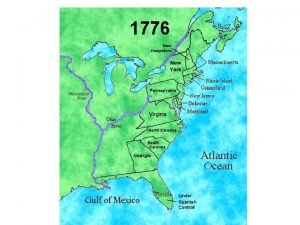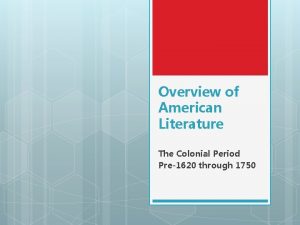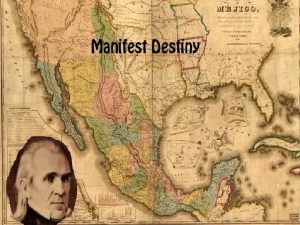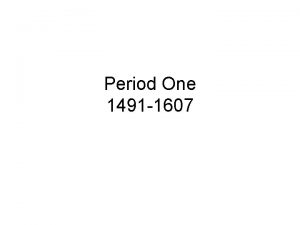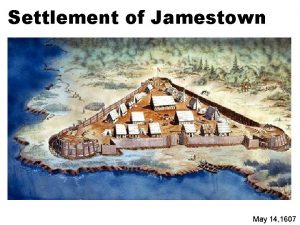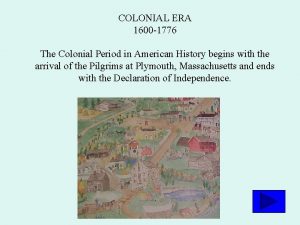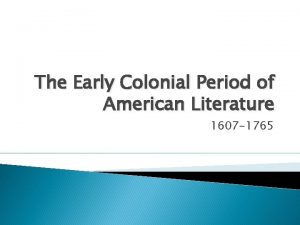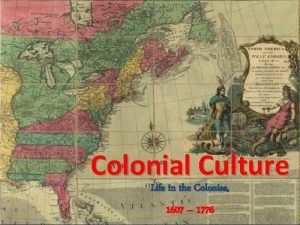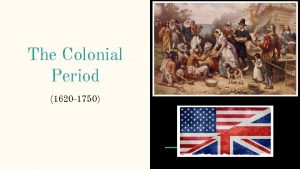Colonial Period 1607 1776 Colonial literature is rich











- Slides: 11

Colonial Period (1607 -1776) Colonial literature is rich and varied, including everything from Indian legends to Puritan sermons. Colonists viewed America as a promised land Americans as a chosen people. The Puritan literature was heavily religious in tone and believed that writing should have a practical purpose.

The Colonial Period – Puritan Characteristics • Puritan is a term referring to a number of Protestant groups that sought to “purify” the Church of England. • Religion was personal and from inner experience. • Believed that God sent his son to save a particular people. • Doubt came by trying to determine whether they were saved or damned. • Saved by grace, felt inside demonstrated outward.

Puritan Beliefs Humans are sinful by nature because of Adam and Eve’s fall from grace – sin of disobedience Salvation belongs to the elect (saved) who can be identified by their virtue People should live in a thrifty, self-reliant, and simple way

Puritan Politics • Puritans believed a covenant, or contract, existed between God and humanity. • Mayflower Compact – The Puritans composed and signed this compact in 1620, and it outlined how they would be governed. This compact allowed them to keep a close watch on their spiritual and public lives. • They demanded strict conformity

Colonial Period – The Function of Puritan Writers To transform a mysterious God To make him more relevant to the universe To glorify God

Colonial Period – Basic Puritan Belief T – Total Depravity (concept of original sin) Everyone is born sinful through Adam and Eve’s fall. Depravity = total corruption

Colonial Period – Basic Puritan Belief U – Unconditional Election (concept of predestination) God “saves” those he wishes. Only a few are selected for salvation. Predestination – the foreordaining by God of all that will happen and how it can’t be changed because God decided it.

Colonial Period – Basic Puritan Belief L – Limited Atonement (Jesus died for the chosen one) Idea that Jesus did not die for everyone, only those he chose.

Colonial Period – Basic Puritan Belief I – Irresistible Grace (God’s grace is freely given) God’s grace (getting what you don’t deserve) cannot be earned or denied. Grace is the saving and transfiguring power of God.

Colonial Period – Basic Puritan Belief P – Perserverance of the “saints” (Being in the will of God) Those elected by God have full power to interpret the will of God, and to live uprightly. If anyone rejects grace after feeling its power in his life, he will be going against the will of God

Rationalist Worldview People arrived at truth using reason God created the universe but does not interfere World operates according to God’s rules and through the use of reason, people discover these rules People are basically good and perfectible
